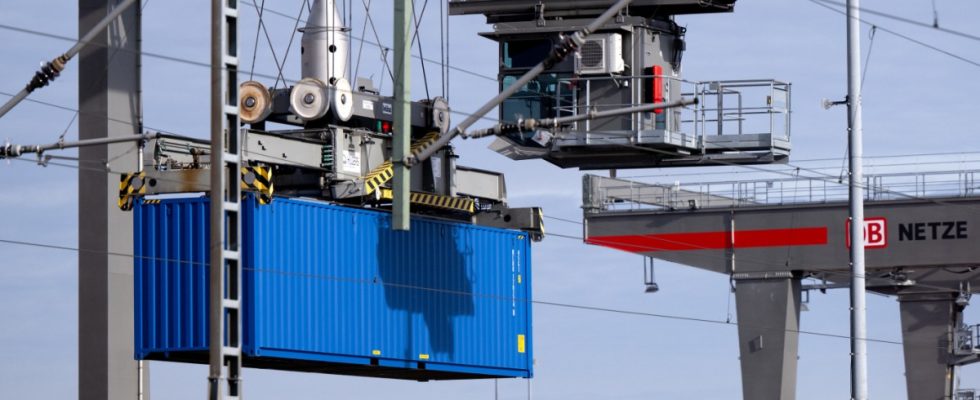Because it’s about the future, this Friday often focuses on the past and present. And the representatives of the transport industry who have come to the Ministry of Transport in Munich take a very critical view of this: there is too much bureaucracy, too many burdens and too little speed in rail expansion, was the tenor of the comments. Transport Minister Christian Bernreiter (CSU) expresses his understanding of the concerns: many things take too long for him, he says.
But in the future there should be a little more traction in the matter, at least when it comes to Bernreiter and the Free State. A new “freight transport concept” is intended to make the transport of goods in this country more efficient and digital, fit for the future. This paper will be “the fundamental basis of our work,” promises Bernreiter.
In any case, there is a need for action, and not just because of the complaints from entrepreneurs. A good 400,000 people work in the industry, which has to reinvent itself a bit for the sake of climate protection: According to experts, the transport sector still offers unused scope to reduce CO₂ emissions – for example by shifting from road to rail or transport routes shortened. Bavaria also lives from trade and transit, also thanks to its central location in Europe. Forecasts assume that freight transport could grow by a good 25 percent by 2035.
Seen this way, the challenges are great – and so are the expectations of the new concept. Work on it started in autumn 2021 and it was originally scheduled to be finished in spring 2023. The background is formed by workshop rounds in which mainly business representatives sat. In the end, very simply, there are three fields of action. The first: the infrastructure. Without them, in the truest sense, little works. The concept states that all four modes of transport – road, rail, air and water – must be in good condition. However, renovation is backing up, particularly on the railways, and the railway network has shrunk in recent decades. Its utilization is therefore high on the main traffic axes. There are “structural overloads” in individual sections.
The second field of action is entitled “new technologies” and primarily refers to digitalization. Their potential is also not being exploited in freight transport. Sometimes companies complain about the slow internet, sometimes there is a lack of platforms, programs and the will to share data with others. The third field concerns the shortage of skilled workers. Whether warehouse clerk or inland waterway boatman, truck driver or mobility expert in the district office: staff is rare.
According to the concept, the construction sites should be addressed with a bundle of measures. However, the Free State is not seen as having a duty everywhere – especially not where protest is to be expected. The paper says: “We demand from the federal government an efficient and maximum resident-friendly rail infrastructure for rail freight transport throughout Bavaria and especially in the northern reaches of the Brenner.” There has been resistance to the latter around Rosenheim for years. The construction of additional freight terminals must also “continue to be supported by the federal government”.
More specifically, there are three pilot projects. Perhaps the most important thing from an industry perspective is not new: with the help of a “slot system” and mandatory bookings, truck traffic jams on and around the Brenner Pass are to be eased. However, Germany, Austria and Italy would have to pull together to achieve this. In addition, a “round table for the recruitment of skilled workers” between politics and business is to be continued. Of course, that doesn’t sound like a completely new way to recruit personnel.
The workshops also resulted in a collection of suggestions for the future. Some are more specific, others more general, such as the “expansion of the refueling and charging infrastructure”. The latter is important in order to advance the decarbonization of freight transport, says Stephan Doppelhammer from the Bavarian Transport Association. Up until now, it still takes many hours to charge electric trucks because there is no quick charging system. Sabine Lehmann from the State Association of Bavarian Freight Forwarders, on the other hand, hopes that more digitalization in the authorities could help to deal with bureaucracy more quickly and easily. But the concept itself is “expressly welcomed”.

